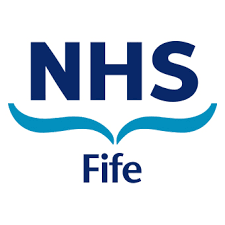Group B Streptococcus (GBS) is recognised as the most frequent cause of early illness (<7 days of age) in newborns and a cause of puerperal sepsis. ~21% of pregnant women carry GBS. 1:2000 newborns are diagnosed with GBS infection.
Newborns acquire GBS through vertical transmission. They are colonised as they pass through the birth canal. Colonised babies are asymptomatic; EoGBS occurs when the colonising bacteria become invasive.
Guidance on screening, risk factors, care of the neonate and midwifery care are available in the full departmental version of this guidance.
Treatment
Antenatal
Women who are symptomatic of an infection should receive treatment
A positive MSSU with GBS should be treated (as per sensitivities from Microbiology result, using antibiotics appropriate in pregnancy and considering allergies).
If GBS is detected on a vaginal swab, treatment with oral antibiotics is not indicated as such treatment does not lower the likelihood of colonisation at the time of labour.
Intrapartum
- Immediate augmentation of labour should be offered to women known to be colonised with GBS presenting with an SRM >37wks, and they should be offered immediate intrapartum antibiotic prophylaxis (IAP)
- Women who have been detected to be colonised in pregnancy should be offered IAP when presenting in labour
- Women who are pyrexial (38°C or greater) in labour should be offered a broad-spectrum antibiotic regimen, as per local protocol, which should cover GBS
- ALL women in confirmed preterm labour (with or without a history of preterm ruptured membranes) should receive IAP
Administer antibiotics as soon as possible after the onset of labour
First Choice
BENZYLPENICILLIN IV
3g loading dose and then 1.5g, 4-hourly, until delivery
Penicillin allergy (mild, i.e. no anaphylaxis, angioedema, respiratory distress or urticaria)
CEFUROXIME IV
1.5g loading dose followed by 750mg every 8 hours
Penicillin allergy (severe)
If GBS isolate is known to be sensitive to clindamycin, prescribe this
CLINDAMYCIN IV
900mg loading dose followed by 600mg every 12 hours
If GBS isolate is known to be resistant to clindamycin or the sensitivities are not known, prescribe teicoplanin
TEICOPLANIN IV
12mg/kg (based on most recent weight and rounded to nearest 100mg). Maximum dose 800mg.
Dosed 12 hourly for first 3 doses, then 24 hourly
It is important to give this slowly. Give over 3-5 minutes as a slow IV bolus or over 30 minutes as an IV infusion
Waterbirth
Women colonised with GBS can have a waterbirth. However it is essential that women understand that the IV access required for IAP will be removed after each dose of IAP in line with infection control policies, while she is using the pool
C-section
Women undergoing caesarean section in the absence of membrane rupture do not require antibiotic prophylaxis for GBS. Routine pre-operative antibiotics will be administered

